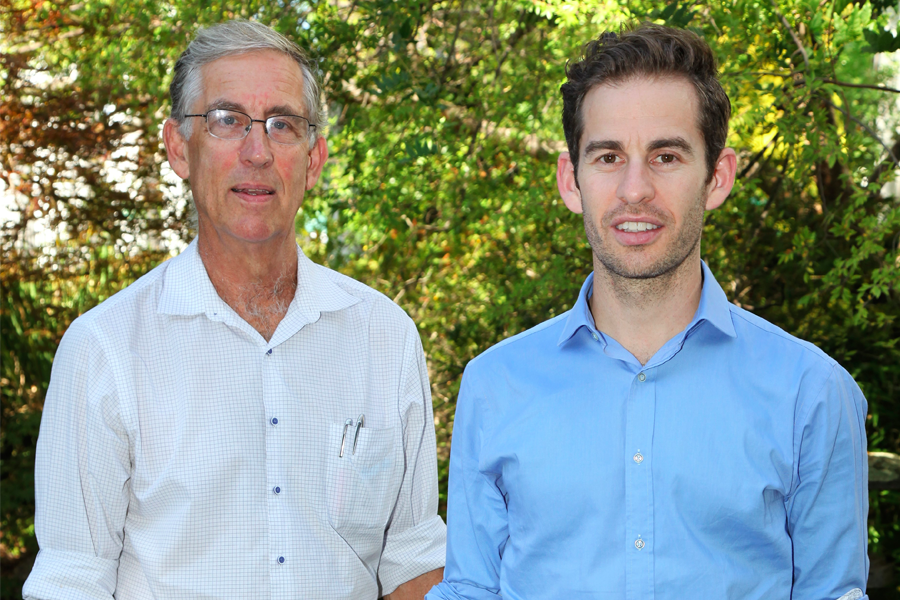Booking disability services online isn’t exactly a straightforward process for those in need. Often getting by on basic funding, service providers for the most part don’t have the resources, nor time, to jazz up their websites or nail down search engine optimisation to help gain visibility.
Enter Seeva, an online marketplace for disability service providers that is looking to help increase their visibility by offering a central space for carers and users with disabilities to search and connect.
The platform onboards every service provider under the National Disability Insurance Scheme (NDIS), a recent government funding initiative that helps Australians with disabilities pay for necessary care services.
Entering public testing in 2013, the scheme officially began last year; it is currently being rolled out across Australia, with the onboarding of service providers to continue over the next three years.
Seeva’s cofounder, Shol Blustein, said development for the platform aligned itself with innovating around the new assets the NDIS offered, whereby a carer or person with disability was now “empowered” to choose which service provider they desired.
According to Blustein, prior to the NDIS, disability services were “block-funded” by the government, meaning only a certain number of service providers were funded, each selected based on their ability to cover a region or age cohort.
With an increase of service providers on board and relevant customers able to access them with an insurance backing, the NDIS meant an increased element of choice – a factor which Blustein said raised new issues.
“Service providers themselves had very little online presence. The have a standard website, but there’s not a lot of visibility. This platform is trying to provide visibility and a lot more clarity and information about the services that are available, so the customer can find them and actually know the difference between each,” said Blustein.
To begin onboarding service providers onto the platform, Blustein explained the startup simply accessed the public list of providers issued by the NDIS. An issue for Seeva, however, was translating the government’s structural information into an accessible format.
“The real challenge was taking the way the NDIS describes services, which is a very bureaucratic and technical method to categorise things, and translating that into searchable categories,” Blustein explained.
“We work exclusively with service providers and consumers to help them find service providers easily, so when someone searches for ‘I want food cooked at home’, they can get a list of search results.”
Refining Seeva’s searching functionality was key to enabling the platform to cater for both a range of carers and users with disabilities, as the startup looked to develop a ‘suggestions’ feature to help guide customers towards their search.
“If you put in ‘food’, for example, you’ll be asked to narrow your search results into finer categories. Say, are you looking for a service to cook food at home, or are you looking at diet and nutrition,” explained Blustein.
“If you select diet and nutrition, you’ll then again be asked whether you’re looking for a dietician or if you want to find a chemist to buy dietary products.”
Considering the platform offers services pertaining to any type of disability, Blustein added that the startup had to take into consideration a number of other factors too besides search results, including altering font size, pagination, and adding an online help centre.
“The feedback we received told us that this is a relationship-based process, and a lot of users wanted to be able to talk to someone,” said Blustein.
Users are able to chat online to help find a service provider, or alternatively access a call helpline number which is listed on the site’s banner and home page.
The home page also features the search bar, which is accompanied by another search box where users are able to pin their location and determine how far they’re willing to travel for a service using a kilometre radius.
From the list of search results, users are able to view a service provider’s “profile” which features all their information including location, pricing in addition to finer specifics such as dietary offerings.
To book, users complete an online form where they detail all their basic information as well as any special requirements or information the provider needs to know. The form is then processed by Seeva to ensure all the details “fit the context” of the service provider, before being passed on.
“Although this is how things are done now, we’re currently working on adding an online booking system where users can view a live calendar of all the available appointment and booking times,” Blustein added.
Since transactions aren’t processed on the Seeva platform, Blustein said the startup takes a referral fee of 2.5 percent from the amount invoiced by the service provider, a number the cofounder said fits within the helping cater “limited margins” of profit NDIS services deal with.
To get the startup off the ground, Blustein said the business has raised half a million in private capital since its inception last year. Looking to build out other features on the platform, the cofounder added that the startup is now looking to raise $1 million and is currently in conversations with investors.
“We really want to build out Seeva to make the transactional process as smooth as possible, so consumers can put in a broad range of keywords and still find services really easily,” he said.
Image: Russel Barnes & Shol Blustein. Source: Supplied.




















Trending
Daily startup news and insights, delivered to your inbox.